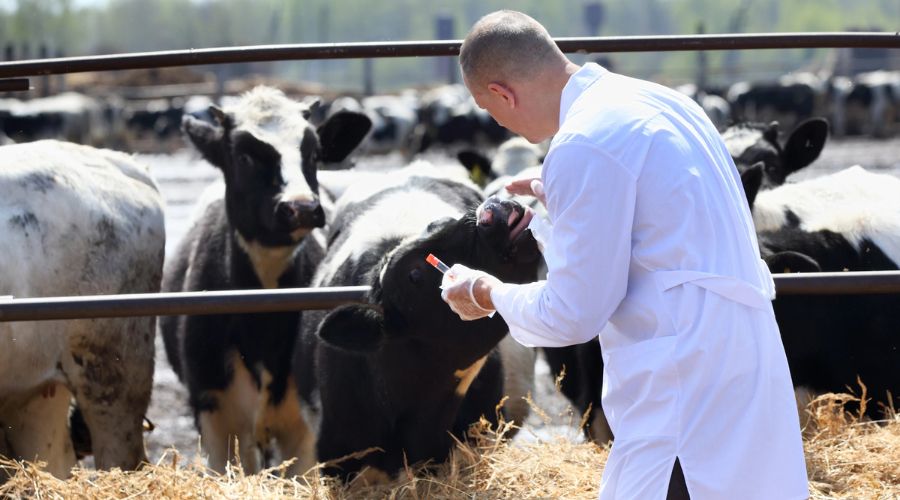New law bans routine use of antibiotics in farm animals
24th May 2024
Veterinary groups have welcomed new legislation banning routine use of antibiotics in farm animals, but warned that a blanket ban of prophylactic treatment could be harmful.

The law, which came into force on Friday 17th May also bans the use of antibiotics “to compensate for poor hygiene, inadequate animal husbandry, or poor farm management practices”.
Prophylactic use is being restricted to “exceptional circumstances”.
Blanket ban could be harmful
A Veterinary Medicines Directorate (VMD) spokesperson said: “We do not support the routine use of antibiotics, including where antibiotics are used to compensate for inadequate farming practices.
“However, a blanket ban of prophylaxis could be harmful to animal health and welfare, while also increasing the risk of diseases spreading.
“Antibiotic use in animals has reduced by 59% since 2014 through our voluntary, collaborative approach – showing we can make sustainable reductions in antibiotic use without blanket measures in legislation.”
Must continue to have the option

British Veterinary Association senior vice president Malcolm Morley said the routine use of antibiotics in healthy animals is never a substitute for good animal husbandry and management.
“However, vets must continue to have the option of prescribing antibiotics when necessary for the sake of animal health and welfare, based on sound scientific risk assessment and clinical judgement.
“The UK has made substantial progress on antimicrobial stewardship in the agricultural sector through voluntary cross-sector efforts by vets, farmers and government.
“The government’s new five-year action plan recognises this achievement and includes BVA’s recommendations for an increased emphasis on data collection and surveillance to help reduce disease outbreaks in the first place.
“Antimicrobial resistance is a shared problem that must be addressed collaboratively by medical, veterinary and environmental professionals,” Mr Morley said.
Critical to human and animal medicine

Professor Roberto La Ragione, head of the School of Biosciences at the University of Surrey, added that antibiotics are “critical” to human and animal medicine, but the emergence of resistance is a global concern.
“Therefore, we must reduce their use to help stop the emergence and spread of resistance.
“We know that animal health and welfare are inextricably linked to our own, so it is vital that antibiotic resistance is tackled in humans and animals, and we can all play a part, from the scientific community to pet owners, vets, doctors, pharmacists, companies, farmers, and the government,” he concluded.
The government has also decided against introducing mandatory antibiotic-use data collection, preferring to rely on data collected voluntarily by industry.
Continued positive progress
The latest RUMA Targets Task Force figures in November showed the UK livestock sector had continued to make positive progress on antibiotic use targets.
UK antibiotic sales for food-producing animals have reduced by 59% since 2014, to 25.7 mg/kg. This represents the lowest sales to date.
Sales of Highest Priority Important Antibiotics (HP-CIAs) in food-producing animals remain at very low levels at 0.12 mg/kg in 2022 and account for less than 0.5% of total sales.

Commenting on the Veterinary Medicines Regulations, which came into force on 17th May, RUMA chair, Cat McLaughlin, said: “RUMA welcomes the updated legislation.
“We look forward to continued collaboration with the VMD as they work with industry to implement the new rules in this important next chapter for animal health and welfare.
“The VMRs are a vital piece of legislation to which a number of important amendments have been made; changes which will bring many benefits to the regulatory environment for veterinary medicines and help continue to drive forward the UK’s position as a leader in the responsible use of medicines.”
Read more livestock news.



